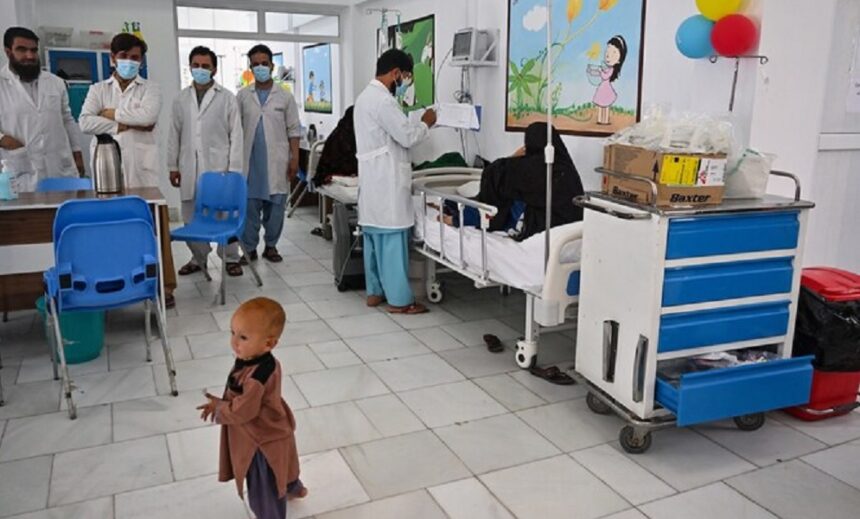The World Health Organization (WHO) and its partner organization, the Global Health Cluster, have reported the closure of 422 health centers across Afghanistan, following the suspension of US humanitarian aid to the country.
As a result, more than three million people in 30 provinces have lost access to essential healthcare services.
In a recent report, WHO and the Global Health Cluster — a network of international health organizations — warned that the US government’s decision to halt all foreign assistance has had a widespread and detrimental impact, particularly on vulnerable populations who depend on life-saving health services.
The funding suspension follows an executive order issued in January by former U.S. President Donald Trump, who stated that U.S. foreign aid no longer aligned with America’s interests due to bureaucratic inefficiencies. The decision has since drawn criticism from international health bodies for its immediate and far-reaching consequences on public health in Afghanistan.
According to the WHO, Afghanistan’s healthcare system — already weakened by decades of conflict — now faces a severe crisis. The lack of funding has disrupted operations at hundreds of facilities and threatens to further deteriorate the fragile system.
Earlier in May, the United Nations Population Fund (UNFPA) also announced that due to budget shortfalls, approximately 6.3 million people — mostly women and girls — would lose access to basic and critical healthcare services in the country.
Additionally, the United Nations Office for the Coordination of Humanitarian Affairs (OCHA) has issued a stark warning: if current funding trends continue, more than 1,900 health facilities across Afghanistan could be forced to shut down by the end of 2025.
The situation raises serious concerns about the future of healthcare delivery in Afghanistan and underscores the urgent need for sustainable international support to preserve critical services for millions of at-risk Afghans.













